Introduction
Darryl Lew
Partner
White & Case LLP
T: +1 202 626 3674
Matthew McFillin
Partner, Forensic Services
KPMG LLP
T: +1 267-256-2647
In today's fast-paced and interconnected world of global business, a robust and comprehensive compliance program is not merely a choice, but a critical imperative for any organization. Drawing on the opinions of 201 senior decision-makers from more than 30 countries.
White & Case LLP and KPMG LLP's "2023 Global compliance risk benchmarking survey" offers powerful insights into compliance practices across industries worldwide and strategies employed by companies to manage their compliance risks—from anti-corruption risk assessments, third-party management and employee risk awareness to environmental, social and governance (ESG) practices and cybersecurity.
Among the key findings are the importance of regular anti-corruption risk assessments and robust third-party management practices—essential components for creating a culture of compliance and transparency.
Use of data analytics is gaining momentum in compliance programs, though many companies are still in the developmental stage. Testing anti-corruption programs for effectiveness is crucial, as is consistent measurement of hotline awareness and effectiveness, along with addressing employee concerns about hotline integrity.
ESG has increasingly become an area of focus, but our respondents reveal a lack of consistency in addressing ESG risks. This inconsistency in approach can hinder the effective implementation of organization-wide policies and procedures and lead to uncertainty among employees. Clearer guidance and communication are essential in navigating the complexities of ESG and ensuring successful integration into business practices.
Looking ahead, cybersecurity takes center stage as the top compliance priority for the next 12 months, as safeguarding sensitive data and proactively addressing digital threats become more important than ever.
By proactively addressing these compliance challenges, organizations can ensure ethical business practices, mitigate risks and safeguard their reputation in an increasingly complex regulatory environment. We hope you will find our "2023 Global compliance risk benchmarking survey" an insightful read.
Key insights at-a-glance
Drawing on the opinions of 201 senior decision-makers from more than 30 countries, White & Case LLP and KPMG LLP's "2023 Global compliance risk benchmarking survey" offers insights into compliance practices across industries worldwide and strategies employed by companies to manage their compliance risks—from anti-corruption risk assessments, third-party management and employee risk awareness to ESG practices and cybersecurity.
In today’s fast-paced and interconnected world of global business, a robust and comprehensive compliance program is not merely a choice, but a critical imperative for any organization







Looking to the future: Cybersecurity tops the list of compliance priorities for the next 12 months




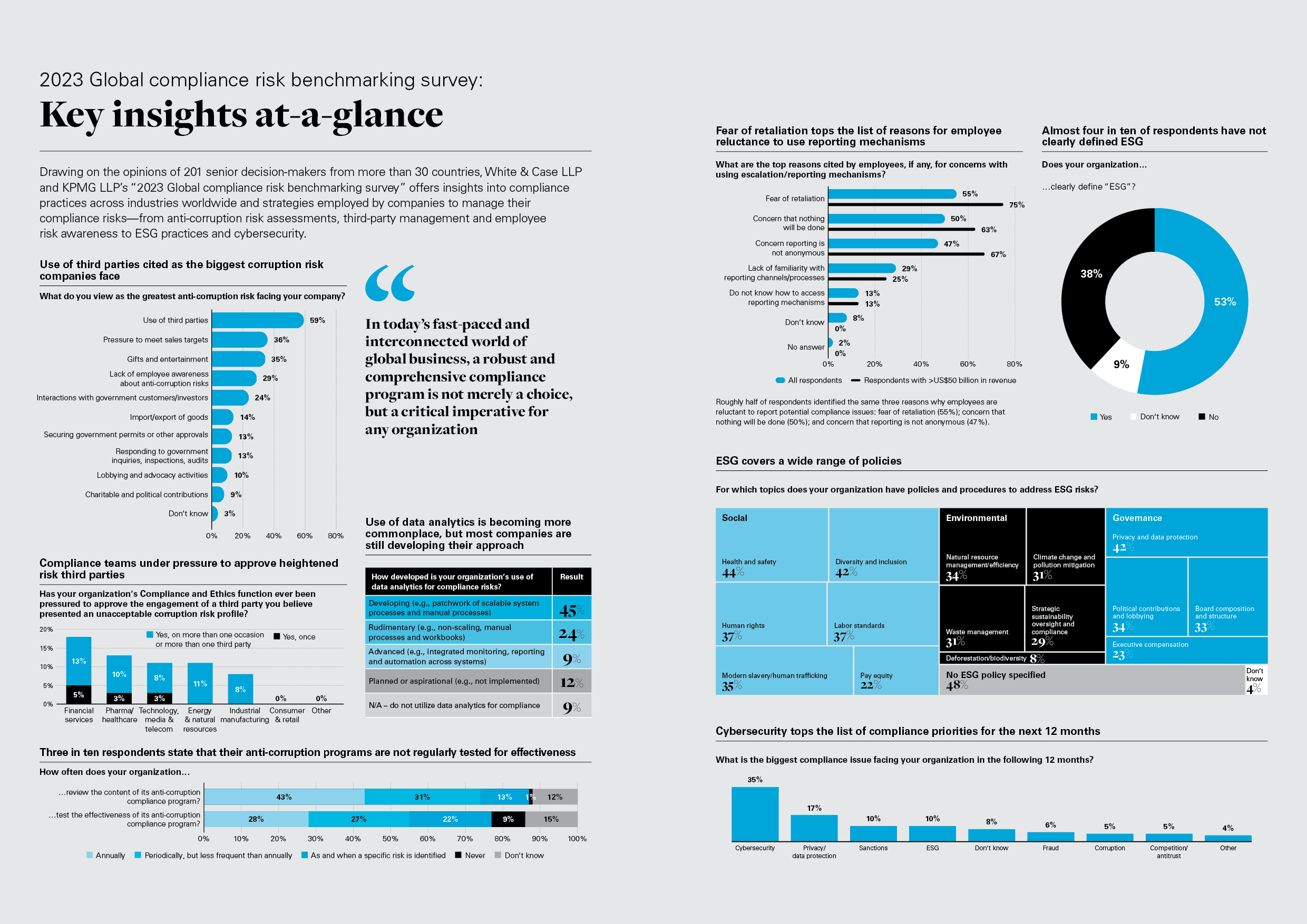 View full image: Key insights at-a-glance (PDF)
View full image: Key insights at-a-glance (PDF)


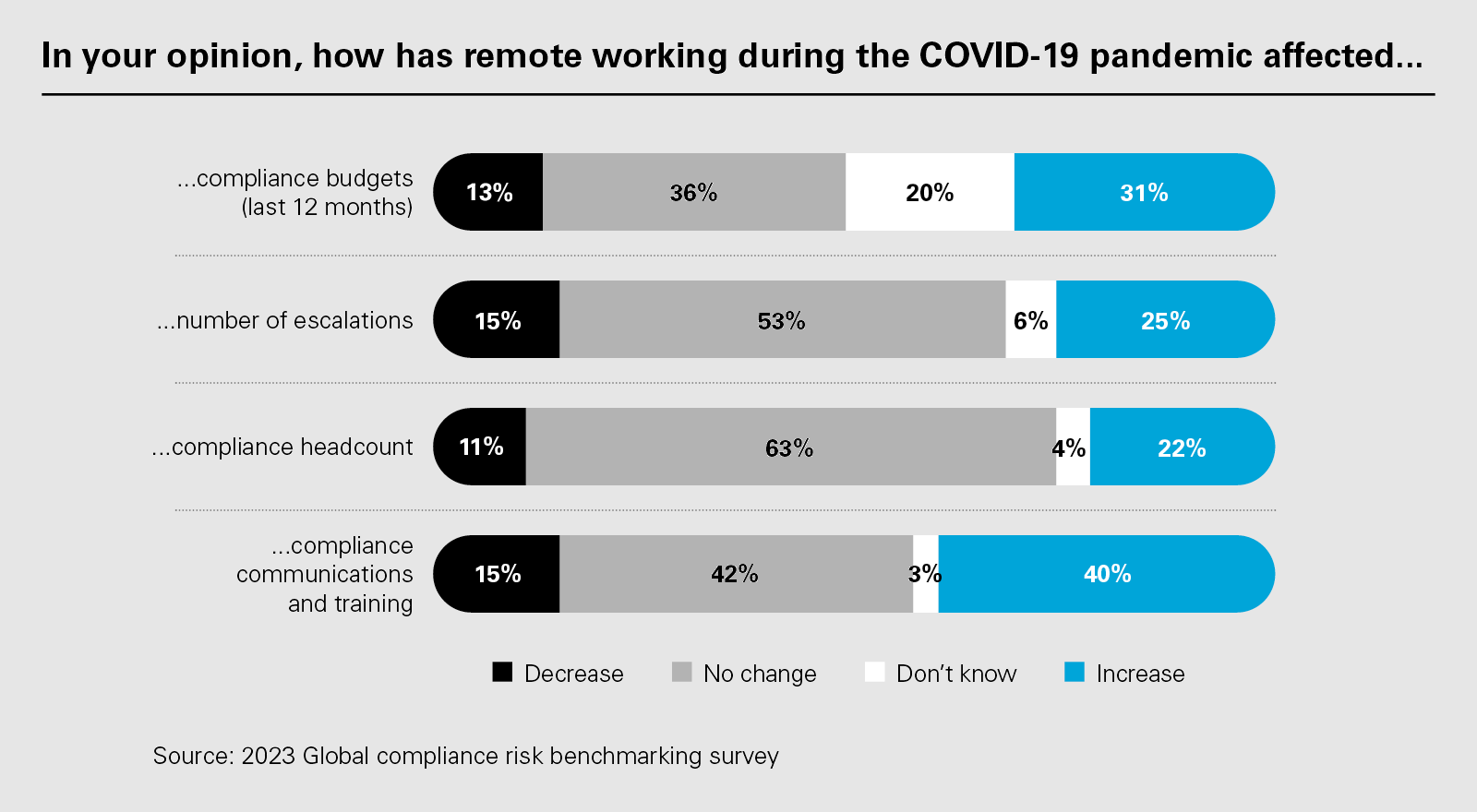 View full image: In your opinion, how has remote working during the COVID-19 pandemic affected... (PDF)
View full image: In your opinion, how has remote working during the COVID-19 pandemic affected... (PDF)
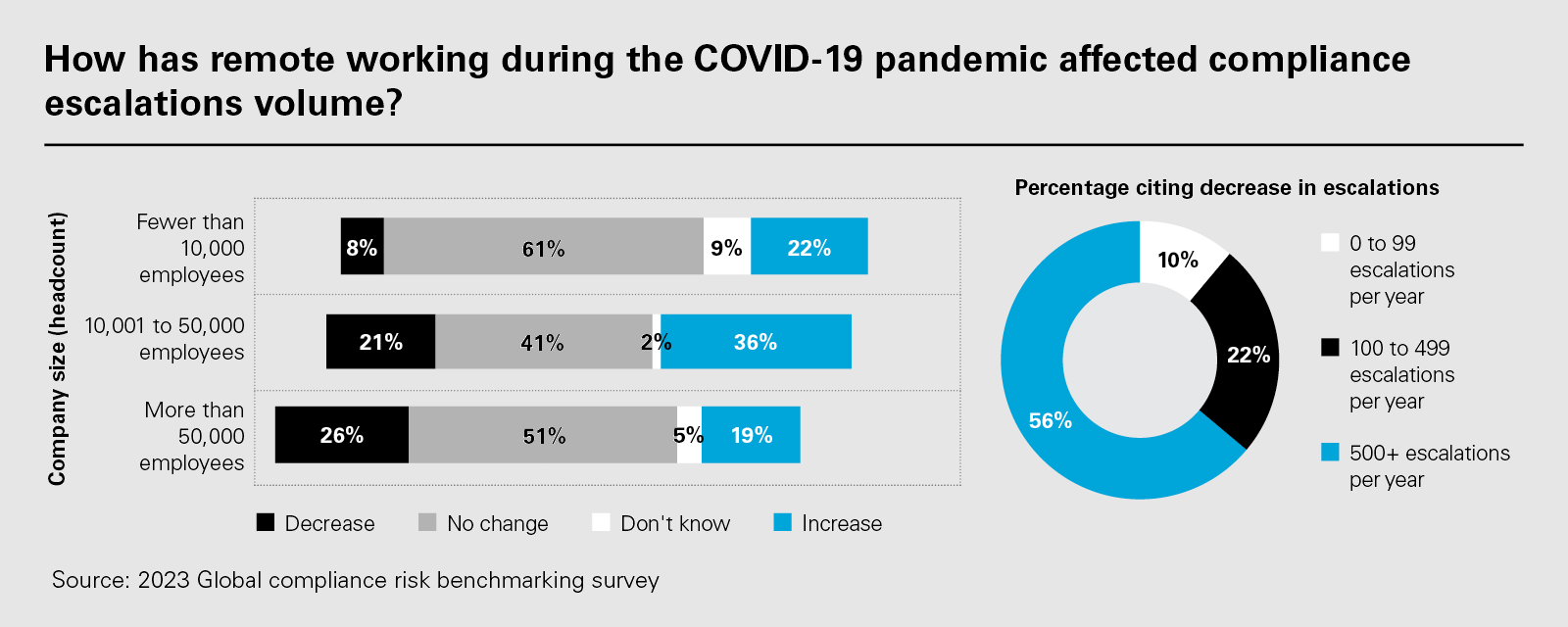 View full image: How has remote working during the COVID-19 pandemic affected compliance escalations volume? (PDF)
View full image: How has remote working during the COVID-19 pandemic affected compliance escalations volume? (PDF)
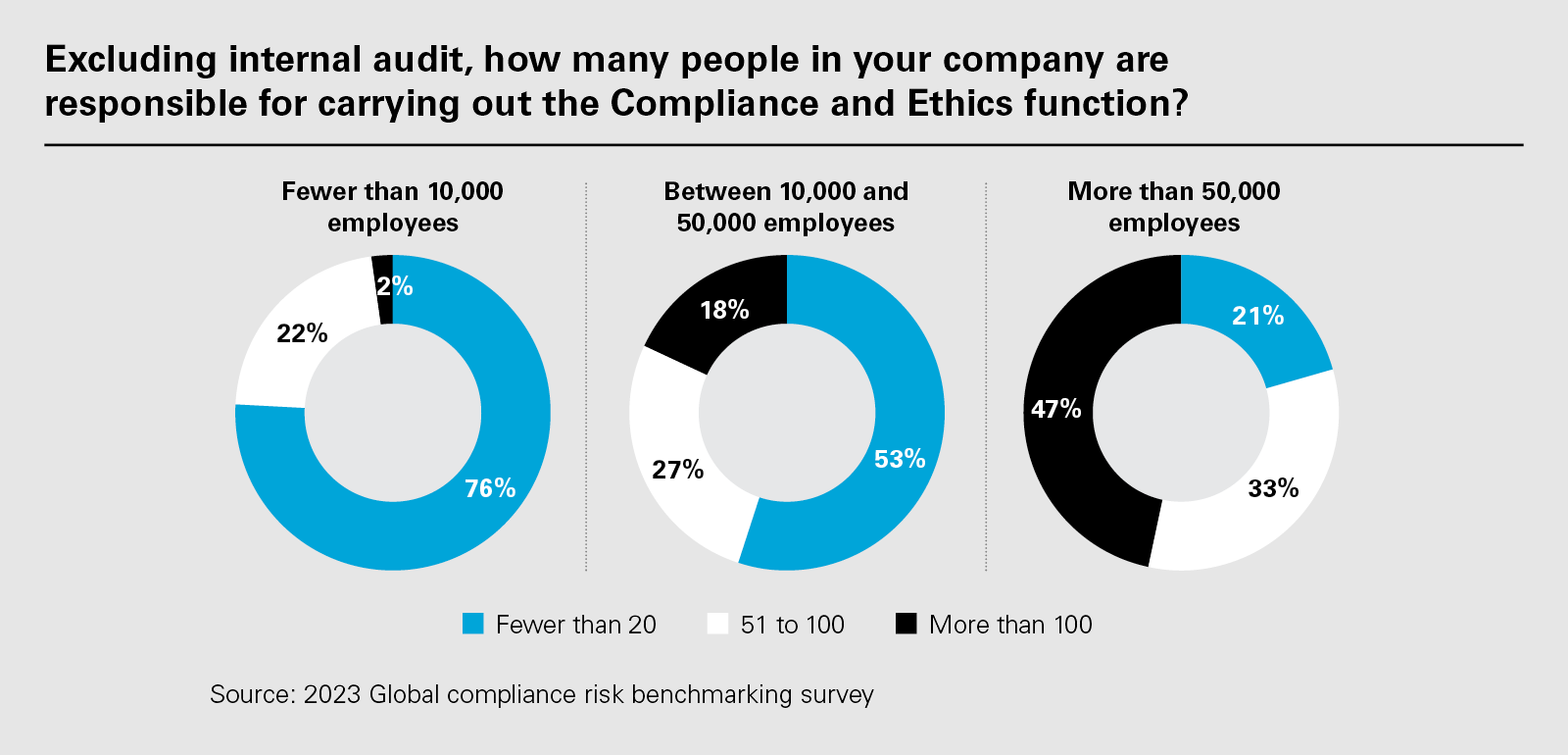 View full image: Excluding internal audit, how many people in your company are responsible for carrying out the Compliance and Ethics function? (PDF)
View full image: Excluding internal audit, how many people in your company are responsible for carrying out the Compliance and Ethics function? (PDF)
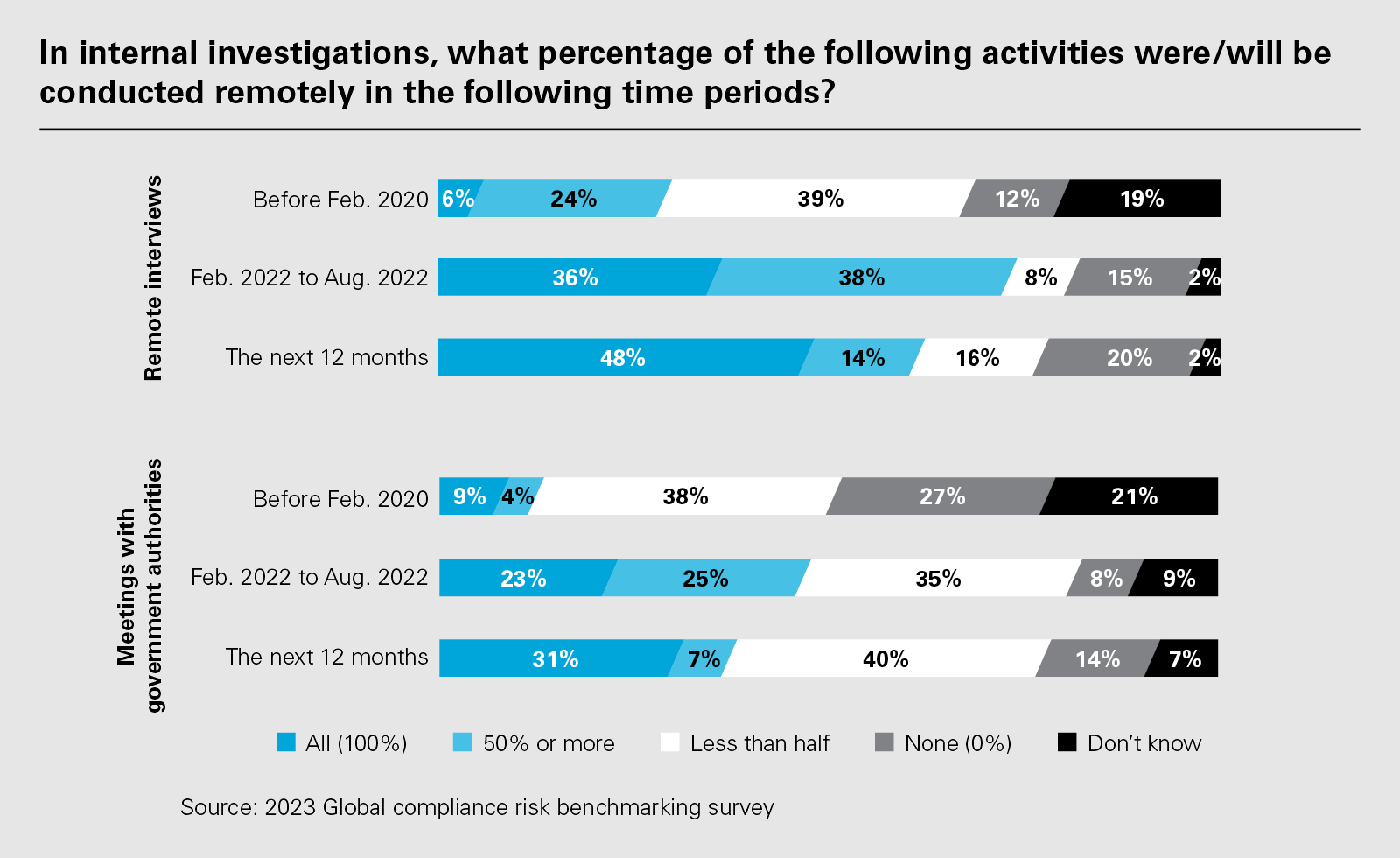 View full image: In internal investigations, what percentage of the following activities were/will be conducted remotely in the following time periods? (PDF)
View full image: In internal investigations, what percentage of the following activities were/will be conducted remotely in the following time periods? (PDF)